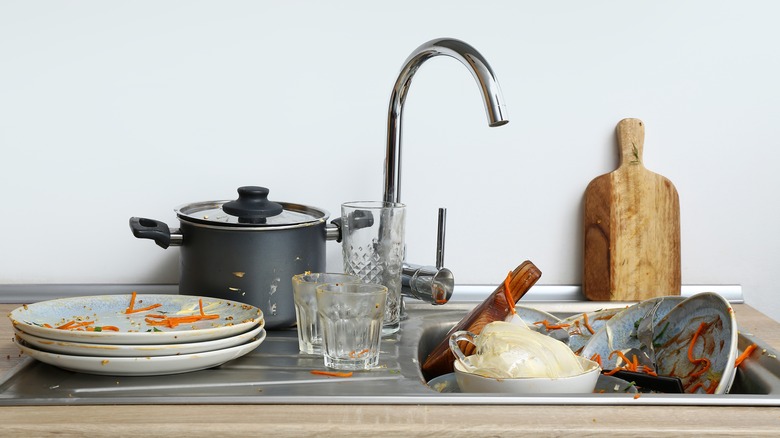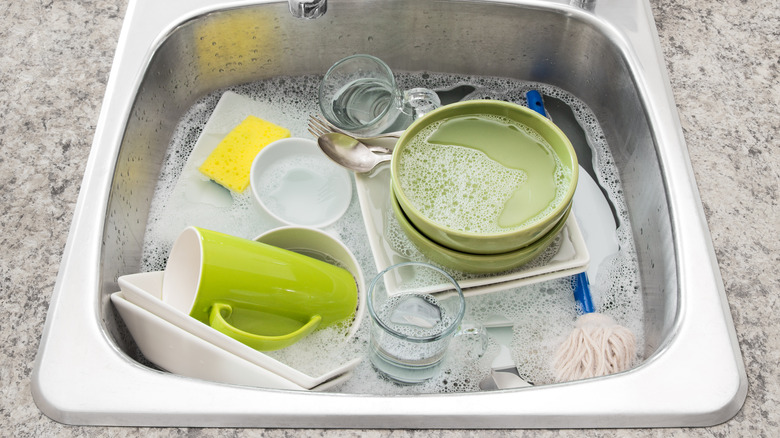Is The British Dish Washing Trend Really Getting Your Dishes Clean?
If there's one thing British people and Americans have in common, it's a love for making fun of the many differences between the two cultures, from lingo to food. TikTok recently discovered one common British habit that has Americans (and even some other Brits) stunned and confused. It's called "British dish washing," and you probably shouldn't try it.
According to several viral TikToks, this technique is different from the typically standard method of cleaning the dishes in the U.S. in one major way: there's no rinsing involved. Instead, "washing up" for some people in the U.K. involves putting all the dirty dishes in a basin of hot soapy water, giving their dishes a good scrub, and setting them on the dish rack to dry — soap suds and all. Proponents of this method claim that it saves water, prevents water spots, and definitely doesn't make their dishes taste like soap. They say that most of the soapy water drips off on its own. But others find this hard to believe. British dish washing is far from a universal method in the UK. Many British people have commented that they do in fact rinse their dishes, but so many have shared their experiences with this method over the years that it seems to be a real phenomenon. Chalk it up to cultural differences, but if you want truly clean dishes, rinsing is a must.
Why British dish washing is ill-advised
To understand why British dish washing is less effective, it helps to consider how soap cleans: it physically binds to water and grease, allowing you to dislodge debris. So if the soap isn't completely washed off, the debris isn't either. While some soap may drip off of dishes without rinsing, not all of it will — which means some amount of grease and food residue is staying on the dishes, not to mention potential illness-causing organisms like E. coli and Giardia. The British practice of washing all dirty dishes in the same "washing up bowl" is risky, too, since germs can spread from dish to dish through the reused water. The soap residue itself is unlikely to cause problems for your health, especially in such tiny quantities, but it could hurt your stomach (and taste weird). Moist soap residue can also cause extra bacteria to grow on the dishes.
So what should you do instead? If you have a dishwasher, use that. To properly hand wash dishes, first scrape off leftover food, then scrub each dish individually with warm, soapy water before thoroughly rinsing with more warm water. (You can turn the tap off while you scrub to save water.) It also helps to wash dishes in order: start with the less dirty dishes first, such as drinking glasses. Air dry if possible and wait until the dishes are completely dry before putting them away to avoid promoting bacterial growth. Also, sanitize or replace your dish washing sponges regularly.

